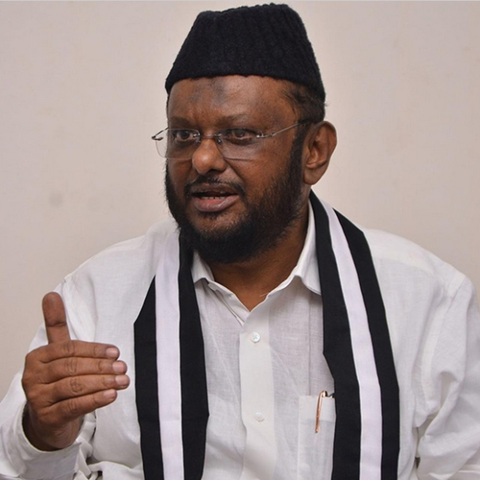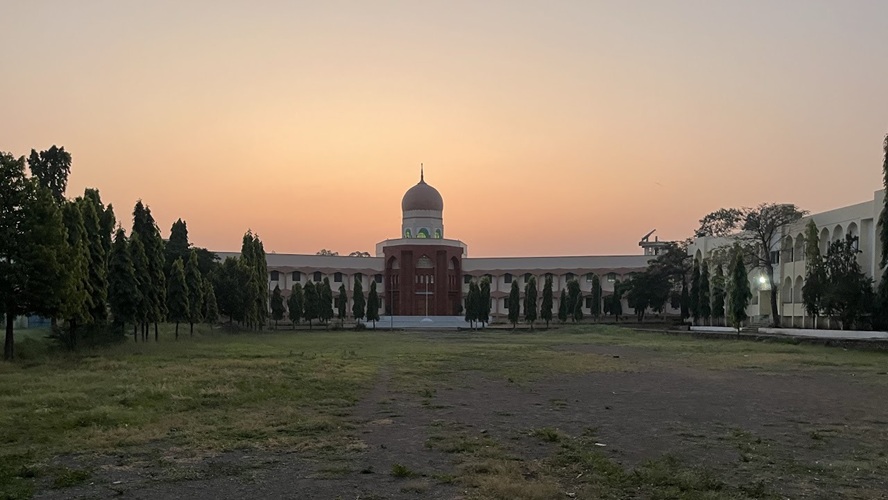Chennai, September 16, 2025 – In a strongly worded press statement, Prof. M.H. Jawahirullah, MLA and President of Manithaneya Makkal Katchi (MMK), has expressed deep dissatisfaction with the Supreme Court’s interim judgment on the Waqf Amendment Act 2025, describing it as a verdict that endorses harmful amendments and fails to provide robust constitutional protection. The statement, issued today, highlights critical concerns about the judgment and calls for the complete repeal of the controversial Act.
Criticism of the Interim Judgment
Prof. Jawahirullah criticized the Supreme Court for selectively addressing only a handful of the 115 amendments (33 insertions, 45 substitutions, and 37 deletions) introduced by the Union BJP Government in the Waqf Amendment Act 2025. He argued that the Court’s failure to impose an interim stay on several regressive provisions undermines constitutional principles. “This judgment falls short of providing complete constitutional protection and is deeply disappointing,” he stated.
One of the most contentious rulings, according to Jawahirullah, is the Court’s decision to allow up to four non-Muslims on the 22-member Central Waqf Council and up to three non-Muslims on 11-member State Waqf Boards. Labeling this as discriminatory, he questioned, “If outsiders to Hindu or Sikh faiths cannot serve on their respective boards, why should non-Muslims be mandated on Waqf Boards?” He argued that this provision unfairly singles out Muslim institutions.
Positive Aspects of the Verdict
While critical of the judgment, Jawahirullah acknowledged some positive aspects. The Court has stayed provisions that would allow Waqf properties under dispute to be confiscated or altered in official records until a final judgment is delivered. Additionally, the clause requiring proof of Waqf ownership based solely on a government officer’s report has been suspended, and no officer can unilaterally decide who qualifies to create a Waqf. The Court also stayed the amendment requiring individuals to prove they have followed Islam for at least five years before creating a Waqf, which Jawahirullah welcomed as a temporary relief.
However, he expressed concern over the Court’s decision to leave the definition of a “Muslim” to State Governments, warning that this could empower governments hostile to Muslims to restrict who may create a Waqf, setting a “dangerous precedent.”
Concerns Over “Waqf by User”
A major point of contention in the interim order is the Court’s stance on “Waqf by User,” which Jawahirullah described as “deeply alarming.” He highlighted that centuries-old mosques and graveyards, established through continued usage, now face existential threats due to paragraphs 143–152 of the judgment, which he believes have further complicated the issue.
The Court’s failure to address three critical deletions from the original Waqf Act—Section 104 (allowing non-Muslims to create Waqf), Section 107 (exempting recovery of encroached Waqf properties from the Limitation Act, 1963), and Section 108 (special provisions for evacuee Waqf properties)—was also flagged as a significant oversight. Jawahirullah warned that this omission could enable state governments to seize Waqf properties, particularly in regions with administrations hostile to Muslim interests.
Call for Repeal and Continued Struggle
Labeling the Waqf (Amendment) Act 2025 as a “deliberate conspiracy to weaken and usurp Waqf properties,” Jawahirullah demanded its complete repeal and the reinstatement of the Waqf Act 2013. He welcomed the All India Muslim Personal Law Board’s (AIMPLB) resolve to continue the struggle to safeguard Waqf properties, noting their announcement of a massive public meeting at Delhi’s Ramlila Maidan on November 16, 2025. He urged Muslims in Tamil Nadu to participate in large numbers to strengthen the movement.
Acknowledgment of Allied Efforts
Jawahirullah extended gratitude to the Tamil Nadu Muslim Munnetra Kazhagam (TMMK), DMK, Congress, Samajwadi Party, and other allied parties for their legal efforts against the Amendment Act, including TMMK’s case filed in the Supreme Court. With the final hearing scheduled for November 2025, he urged senior counsels of these parties to highlight the interim verdict’s shortcomings and advocate for the Act’s repeal.
The interim verdict has sparked significant controversy, with Prof. Jawahirullah and MMK leading the charge against what they see as an unconstitutional and discriminatory law. As the legal and public battle intensifies, the call for unity and action among Muslim communities and their allies grows stronger, setting the stage for a pivotal showdown at the final hearing.






0 Comments